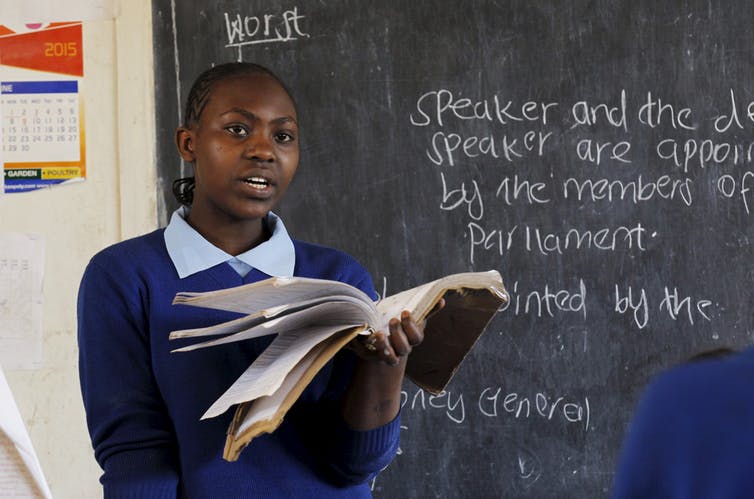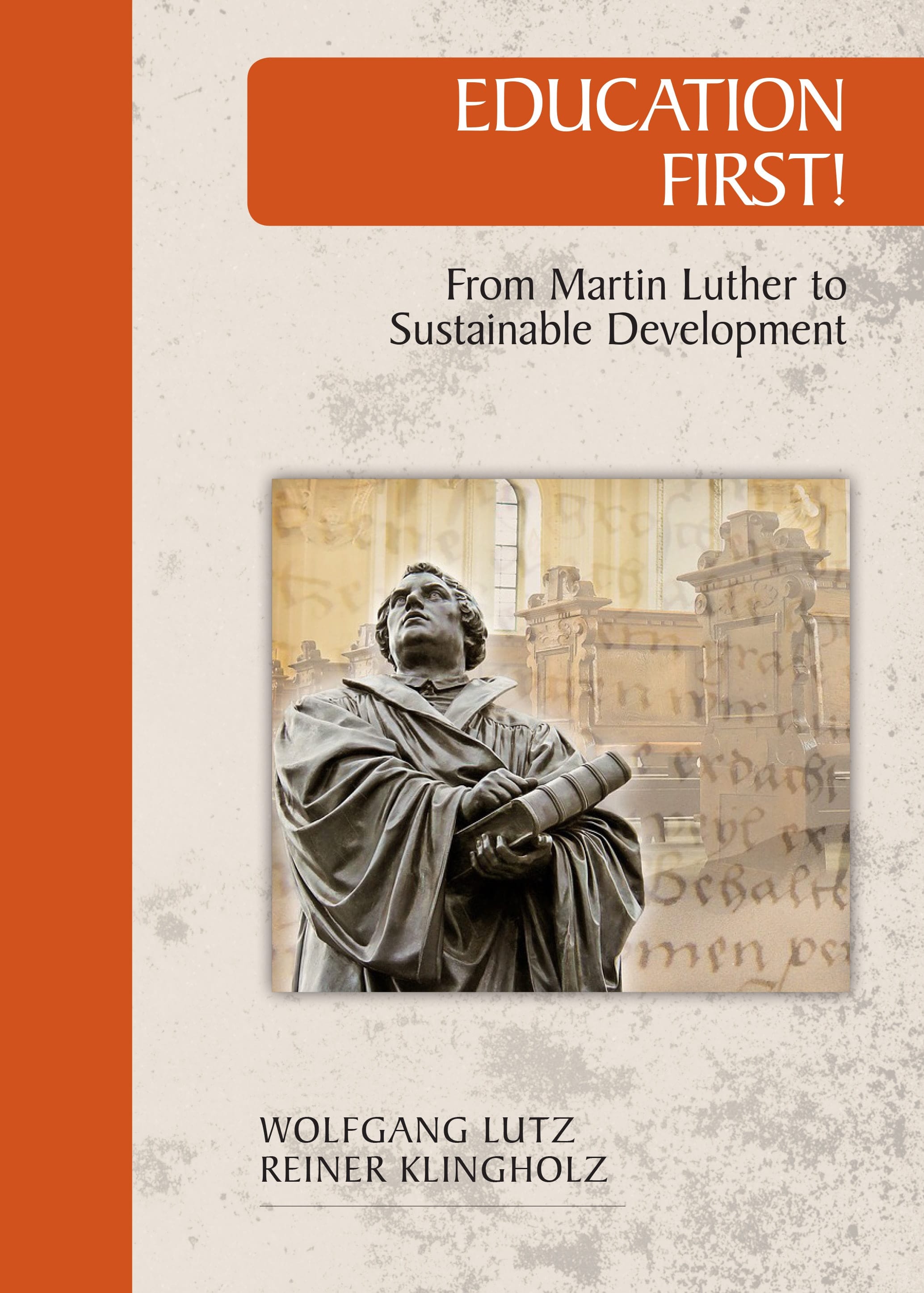
Reuters/Thomas Mukoya
Martin Gustafsson, Stellenbosch University
The evidence is clear: education changes lives, in ways that are often not fully understood.
For instance, quality education can help you live a longer, healthier life. This is because education equips you to approach health on a rational, informed basis stripped of superstition. Your own education can benefit others’ health, too: research from Malawi has showed that having educated people as close neighbours enhances your health.
Evidence from Indonesia, meanwhile, points to education being a particularly strong predictor of who survived the aftermath of the 2004 tsunami. Cuba copes with hurricanes far better than Haiti in part because its citizens are more educated.
Wolfgang Lutz and Reiner Klingholz recently completed a book, in German, on education’s role in resolving pressing current problems of inequality and sustainability, drawing extensively from history and recent scientific research. In 2017 it was translated into English with the title Education First! From Martin Luther to Sustainable Development.
Lutz is a world authority on population trends and climate change. Klingholz is a biologist and demographer. The pair worked on the book in South Africa, while based at the Stellenbosch Institute for Advanced Study in 2015.
Education as a driver of history
Lutz and Klingholz explore how mass literacy became a revolution that changed the course of Europe’s and, via colonialism, the world’s history.
Up to around 500 years ago, a defining feature of world inequality was that in those parts of the world where writing existed only around 1% had access to the schooling and texts that made literacy possible. Virtually all of this tiny minority were men. In Europe, the Muslim world and China, 99% of people were illiterate.
Martin Luther, in rebelling against Europe’s Catholic order, insisted that literacy should be universal. It was a view which would have appeared fanatical at a time when no one – probably including Luther – imagined just how much economic benefit would flow from literacy and education more broadly.
The impact of the Reformation on literacy was not immediate, but the genie had been let out of the bottle. By 1800 around half of Protestant Europe was literate. By 1900 literacy was near universal. Japan, eager to modernise, replicated many aspects of the German education system, starting in the 1870s.
Britain’s and, much later, Japan’s empires proved efficient in their brutality largely thanks to an exceptionally educated population at home. The rise of the United States can be attributed to the fact that this champion of private enterprise also pioneered the mass public funding of secondary schooling.
It is argued that Germany became susceptible to the lies of the tiny Nazi party because its secondary schooling had fallen behind its counterparts across the world.
Enablers and disenablers
Modern technologies are undoubtedly education enablers. Their absence has also played a big role in how education has – or hasn’t – evolved. One sobering case of technology suppression happened in 1485 when the Ottoman sultan imposed a ban on printing. It lasted for two centuries, throttling the technology that Luther’s revolution relied on. This partly explains why the Islamic Golden Age, with its scientists and thinkers, was unable to evolve into a mass education movement.
Communism, for all its failings on the economic policy front, was generally an excellent promoter of education. Inspired by Marx, himself originally a first-generation Lutheran, Mao laid the foundations for mass quality schooling in China, which made an astounding economic takeoff possible several decades later.
Julius Nyerere and Robert Mugabe were in some respects similar education pioneers in Africa.
Education already serves as a bulwark against existential threats. It helps communities to understand each other, weakens rampant nationalism, assists in population control and widens the talent pool from which innovation must come. But parts of the world need much more of it.

Africa’s story
Africa has made important strides: today around 80% of African children attend primary school and around 50% secondary schooling. But some countries are doing much better than others. Take Nigeria, for example. The oil-rich country should be an education leader in Africa, but is in fact a laggard. African countries with far worse resource endowments have performed much better educationally.
At the other end of the spectrum is Mauritius, which took a decision to massify quality education in the 1960s. The impact is still being felt today. It stands out as the only African country (other than tiny Seychelles) to have virtually eradicated poverty.
The island’s post-independence leadership in the 1960s was neither communist nor Lutheran. It simply understood the value of education.
Ethiopia, the only non-Muslim sub-Saharan African country with a long history of literacy – albeit limited to a tiny minority – benefited from good leaders in the 1980s. They refused to follow instructions from the International Monetary Fund to cut education funding. This stubbornness, also seen in Ghana and Mozambique, bore fruits in the form of Ethiopia’s recent economic growth, and reduced fertility rates. In Addis Ababa they are as low as in Switzerland. Nigeria, which essentially gave in to the IMF, has paid a high price for this.
Elite capture in places such as Malawi have held education back. 68% of public spending on education goes to the richest 10% of the population, partially because spending is heavily skewed towards one university.
The role of foreign donors
International development funding debates display a short-sighted lack of appreciation for education’s long-term benefits. The evidence suggests that a significant portion of the funding being made available for climate change adaptation is best spent on education.
UNESCO’s estimate of the annual cost of plugging the financing gap to bring schooling, up to the lower secondary level, to all the world’s children equals less than 1% of what the United States spent on its war in Iraq, or a tenth of what Qatar has committed to the 2022 World Cup.
![]() The world moves fast. In the three years since the book was first published in German, much has changed. Then, US participation in global climate agreements still seemed assured. Now its English title can clearly be read as a sideswipe at the Trump administration and its insistence on “America First”. One wonders how the authors would have dealt with a newly emerging risk: a tragic mix of a high level of education, as in the US, with an anti-science populism.
The world moves fast. In the three years since the book was first published in German, much has changed. Then, US participation in global climate agreements still seemed assured. Now its English title can clearly be read as a sideswipe at the Trump administration and its insistence on “America First”. One wonders how the authors would have dealt with a newly emerging risk: a tragic mix of a high level of education, as in the US, with an anti-science populism.
Martin Gustafsson, Education economist, Stellenbosch University
![]()
This article was originally published on The Conversation. Read the original article.
